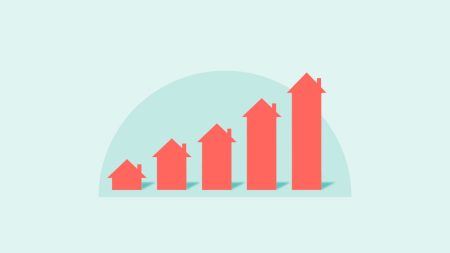Credit cards are a popular credit-building option for American consumers. In 2023, about four out of five American adults (82 percent) had a credit card. However, credit cards are not the only option.
Whether you can’t qualify for a card yet — or just prefer not to have a credit card for one reason or another — there are many strategies you can use on your credit-building journey. Here’s a look at the top seven ways to build credit without a credit card.
Factors that impact your credit
Your credit score is influenced by several factors — and you often don’t need a traditional credit card to build strong credit. The main factors that impact your credit include:
- How long you’ve had credit: The age of your oldest and newest accounts and the average age of all your accounts show how much experience you have with credit. A longer history benefits your score.
- How much you owe: Credit bureaus consider the total amount you owe and the percentage of your credit limit you’re currently using. High balances can hurt your score because it shows you may be having trouble managing credit.
- The types of credit you use: Revolving credit includes accounts like credit cards and personal lines of credit, and installment credit includes accounts like car loans and personal loans. Having a mix of revolving and installment accounts can help your credit.
- Your payment history: Your payment history is one of the most important factors that affect your score. Consistent on-time payments will raise your score, while missed or late payments will likely negatively affect you.
- Your recent credit inquiries: Hard inquiries on your credit report, which show up when you apply for a new credit card or loan, can temporarily negatively affect your score.
7 ways to build credit without a credit card
Owning a credit card and using it responsibly is not the only way to improve or repair your credit. If you don’t have a credit card, you can influence your credit score in several ways, including taking out a loan, becoming an authorized user or adding other types of monthly payments, like rent or utility bills, to your credit report.
1. Become an authorized user
Many credit card companies allow cardholders to add authorized users. Authorized users have permission to use the main cardholder’s account with no need for a credit check. This lets you use a card and have credit activity reported to credit bureaus without requiring you to have your own card.
Ask a family member or close friend to add you as an authorized user. Be careful who you ask, since you and the main cardholder are tied together financially. If the cardholder uses the card responsibly, their account history will benefit your credit. If the cardholder overspends or misses a payment, it will reflect poorly on your credit score.
Tip: You can be an authorized user without the primary cardholder giving you access to the account. They don’t have to give you the card or card details.
2. Get a credit builder loan
Credit builder loans are designed for people who don’t have much credit history or have bad credit. They’re an option for people who may have a hard time getting approved for a traditional loan, though they work very differently.
With a traditional loan, you receive the money upfront, then repay the lender over time. A credit builder loan works in reverse since its only purpose is to help you build credit: You don’t receive the loan proceeds until you’ve paid off the loan.
The lender puts the loan amount (typically between $300 and $1,000) into a secure account. You make a fixed monthly payment, and the lender reports your payments to the credit bureaus to help you build credit. After the loan term, you’ll receive the loan proceeds minus any applicable fees.
3. Consider an auto loan
If you’re in the market for a new vehicle, taking out an auto loan could help to improve your credit score. You can get an auto loan through the car dealership or from a bank, credit union or online lender.
Payments for car loans are reported to credit bureaus. When you make on-time monthly payments, you show the credit bureaus that you can repay loans as agreed, which benefits your score.
Car loans can be a good option for people with poor credit because they’re usually easier to qualify for than other loan types. That’s because auto loans are secured loans that use your vehicle as collateral.
4. Apply for a secured credit card
If you want a credit card but haven’t been able to get approved, a secured credit card might be a good option. Secured credit cards have lower approval thresholds than their unsecured counterparts because cardholders need to supply a cash deposit in advance.
The amount of your deposit usually becomes your credit limit. For example, if you apply for a secured credit card and put down a deposit of $500, you could expect a $500 credit limit.
Once you’re approved, secured cards work just like regular credit cards. You use the card for purchases, then pay your balance each month. After several months of consistent on-time payments, you may qualify for an upgrade to an unsecured credit card.
5. Repay an existing loan
Repaying existing loans — such as student loans — can improve your credit rating if you pay on time and avoid defaulting. By paying your loans according to the agreed terms, you’re improving your credit score.
You might also want to look into debt consolidation to help you pay off your existing loans.
6. Report your rent payments
Rent payments are typically not reported to the credit bureaus. However, the three major credit bureaus are willing to include rent information on your credit report if they receive it.
Some landlords choose to automatically report your monthly rent payment to credit agencies. Ask your landlord about their reporting policy since your history of on-time rent payments can help boost your score.
If your landlord doesn’t report your rent payments, you can use a third-party service to add it yourself. There are many rent-reporting services to choose from. Some are free, while others charge a fee.
7. Get credit for other monthly bills
Rent is not the only bill you can add to your credit report. Being able to pay other recurring bills on time, such as utilities, internet and phone contracts, can be another strong indicator of financial stability.
Experian Boost, a free service offered by the credit bureau, is one way to get credit for monthly bills. You can choose which bills you want to add to your Experian report, and only your on-time payments are reported.
Many other credit-building apps can help you build credit with your regular bills. You may want to sign up for other services like Self or StellarFi, which track your payments every month and include them on your credit report.
Avoid hurting your credit
As you work on building your credit without credit cards, it’s crucial to avoid potential pitfalls that could hurt your score. Focus on the factors that most affect your credit:
- Always make payments on time: The best way to improve your credit is by making on-time payments. Your payment history makes up 35 percent of your credit score. Even one or two missed payments can significantly damage your credit.
- Keep old accounts open: A lengthy credit history shows a pattern of financial responsibility to lenders. Keeping old accounts open for as long as possible is often a good idea — even if you no longer use them.
- Keep your credit utilization low: Your credit utilization is the percentage of your total available revolving credit you’re using. For example, if you have a $1,000 credit limit and a $100 balance on your personal line of credit, your credit utilization is 10 percent.
- Limit new credit applications: Applying for several new accounts at once can make it look like you’re having financial trouble and are at risk of missing payments. Spread out your applications to avoid hurting your credit score.
The bottom line
Credit cards can be useful tools, but they’re just one of the many options available to people who want to build credit. To establish or repair your credit without credit cards, consider other options like becoming an authorized user on someone else’s card or taking out a credit builder loan.
Once your credit improves, you may decide it’s time to get a credit card. There are many types of cards, including low-interest, rewards and travel cards, so consider your habits when choosing the best credit card for your needs.
Frequently asked questions
Read the full article here










